The milestone dialogue between ASEAN and Japan addresses the critical facets of sustainable tourism, industry innovation, and regional cooperation for resilience and growth.
The ASEAN – Japan Tourism Ministers’ Special Dialogue was held to commemorate the 50th year of ASEAN-Japan Friendship and Cooperation, and to discuss the “Next 50 years with ASEAN and Japan: Designing the Path to Sustainable Tourism Together”. Mr. Ha Van Sieu, Vice Chairman of the Vietnam National Authority of Tourism (VNAT) led the Vietnamese delegation to attend the event.
The event was organized by the Ministry of Land, Infrastructure, Transport and Tourism of Japan, in collaboration with the Ministry of Information, Culture and Tourism of Lao People’s Democratic Republic (as the Chair of the Meeting for the ASEAN Tourism Ministers – M-ATM), with the participation of Ministers, tourism management agencies and representatives of the Organization for Economic Cooperation and Development (OECD), Pacific Asia Travel Association (PATA), ASEAN-Japan Center (AJC).
At the Dialogue, ASEAN member countries shared their views on promoting sustainable tourism and increasing visitor exchange. Vietnam also shared about the post-pandemic tourism recovery situation and experiences in a more sustainable and resilient tourism recovery.
VNAT’s Vice Chairman Ha Van Sieu said, “From the second half of 2022 up to 2023, Vietnam, in the first 9 months of 2023, received 8.9 million international visitor arrivals, recovered by 66% before the pandemic level of 2019. Among them, Vietnam welcomed 415,000 arrivals from Japan which recovered 58% of the 2019 number.”
The tourism atmosphere has totally changed. Therefore, many initiatives and creative innovation efforts have been made to rebuild the tourism industry and rethink the future of tourism toward a sustainable path. Such initiatives as the circular economy, sharing economy, digital economy, smart tourism, green tourism and have received a lot of attention in Vietnam and beyond.
According to VNAT’s Vice Chairman Ha Van Sieu, in reality, the tourism industry is now facing increasing challenges and obstacles that could hinder the recovery process as well as future tourism development. These include changes in consumer behavior resulting in unpredictable travel patterns; impacting of slow economic recovery resulting in income and hence travelers cut down demand towards crucial activities and services; decline to spend; unforeseen climate changes, and other related issues etc. Vietnam called ASEAN member states and Japan in partnership and cooperation should work closely together to overcome these challenges.
VNAT’s Vice Chairman Ha Van Sieu added, “In the perspective of sustainable tourism, Vietnam believes that cultural sustainability should come to the forefront in harmonization with economic and environmental aspects. Culture is an enormous and invaluable resource for tourism development. Respecting the differences and indigenous cultural diversity of ASEAN countries and Japan, ASEAN countries can create unique, distinct, and incomparable tourism products, which can further develop the exclusive appeal of each country, its people, and their communities. Diverse cultures attract tourists to ASEAN countries and Japan while providing diverse experiences to tourists that encourage more tourism activities with satisfied impressions, longer stays and a positive destination image.”
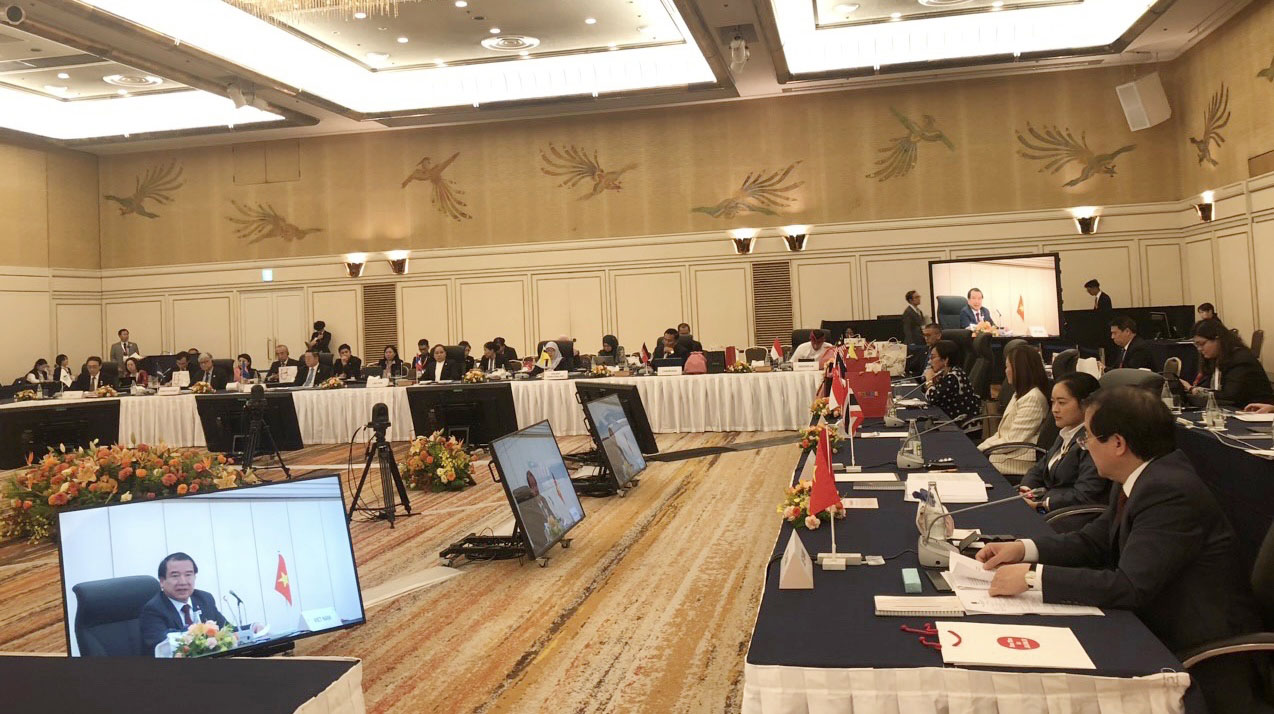
Viet Nam’s experience in developing tourism during the recent rebound period shows that the country places equal importance on both domestic and international tourism. VNAT’s Vice Chairman Ha Van Sieu then urges tourism businesses to carefully listen to and consider the real needs of travelers in order to adjust investments, develop new and improved tourism products; and provide additional training to the workforce etc.
Vietnam also recognized that where less developed there great potential for tourism development such as nightlife tourism services, tourism in remote and rural areas … especially the diverse and unique culture of 54 ethnic minorities stretching along the territory from North to South with each’s cultural identity are the treasure of the country.
Vietnam also focuses on digital transformation in tourism to create a smart tourism eco-system, however we need to learn and expect from sharing experiences with Japan and other ASEAN member countries such as establishing tourism big data, travel smart solutions, travel apps, digital maps on attractions, gastronomy…
At the end of his speech, VNAT’s Vice Chairman Ha Van Sieu affirmed that Viet Nam is committed to continuously and closely working together with ASEAN member states and Japan to promote mutual tourist exchanges and improve the quality and competitiveness of the tourism sector, aiming to develop tourism while still preserving and promoting cultural heritage values, creating economic benefits and protecting the environment.
VNAT’s Vice Chairman Ha Van Sieu believes that the strong bond of traditional friendship cooperation and the fully trust built over the past five decades will continue to pave the way for fruitful tourism collaboration between ASEAN and Japan in the years to come, which bring mutual benefits to our nations and contribute to the prosperity and sustainability of the region.
Delegates who joined the Dialogue agreed to promote innovative marketing activities for sustainable tourism while highlighting the unique cultural and natural attractions of ASEAN and Japan. Reaffirm the importance of developing tourism content to promote the protection, conservation, and inheritance of important resources such as nature, culture and tradition, while leveraging these resources for tourism to develop sustainable destinations that benefits both local residents and travelers.
Delegates indicated that it is important to boost the tourism sector’s contribution towards the achievement of global net zero carbon emissions through eco-friendly transportation, renewable energy adoption, waste management, and responsible consumption while enhancing climate change awareness within the tourism ecosystem, stakeholders and communities.
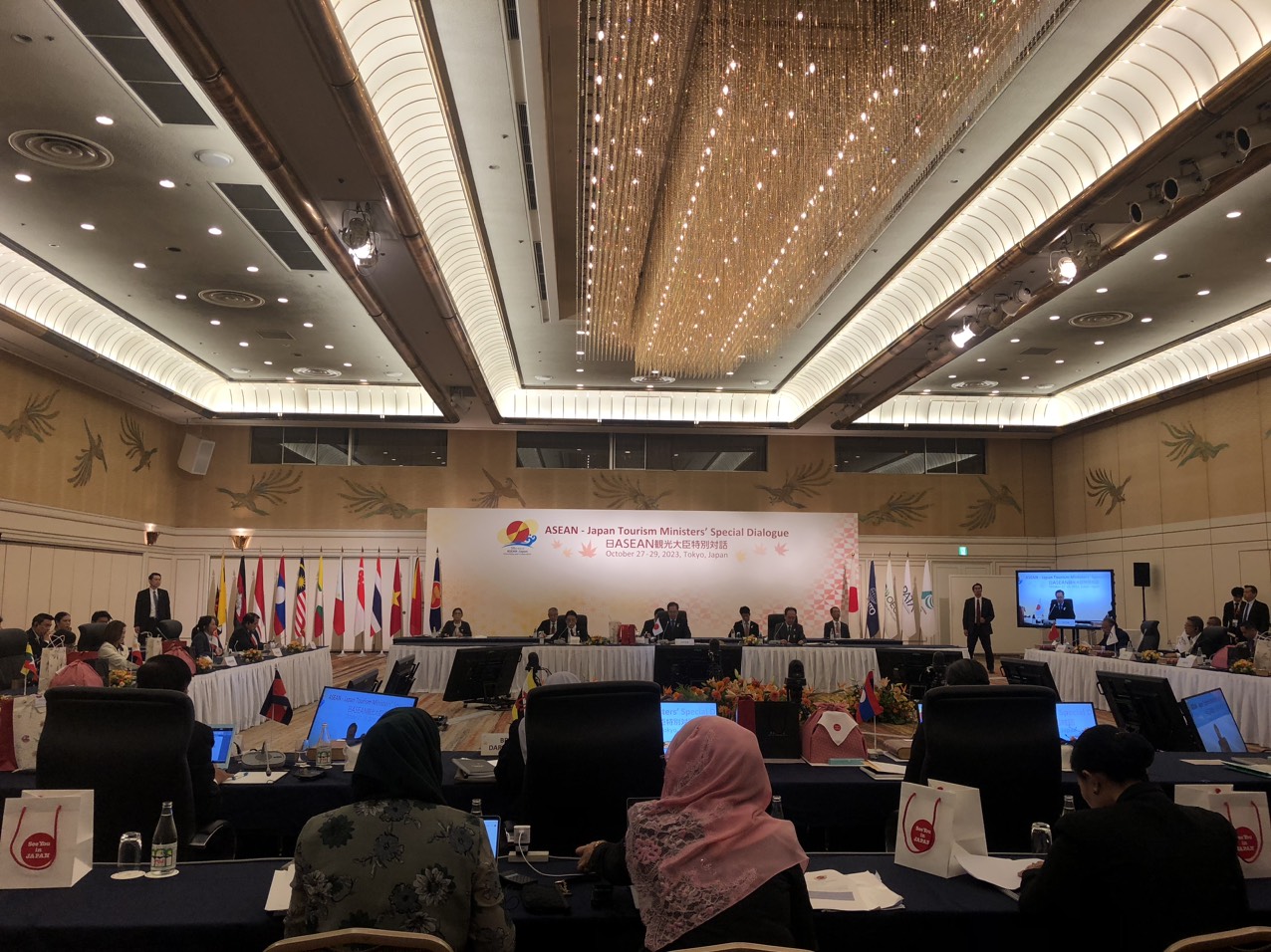
Enhance travelers’ experience, and convenience and encourage exploration of lesser-known tourism offerings while achieving higher productivity and profitability within the tourism sector through the development of high-quality destinations and promotion of innovative tourism digital transformation.
Explore initiatives that generate more tourism-related job opportunities for communities, which would bridge economic disparities, empower local talent, increase social inclusion, alleviate poverty and more. Encourage the use of data to monitor and develop evidence-based strategies to promote sustainable community-based tourism.
Anticipate potential future crises and implement initiatives to enhance tourism resilience and sustainability within regions; Enhance capability-building and knowledge-sharing initiatives in sustainable tourism through the exchange of best practices and technical expertise, as well as conducting training programs to build the skills and capabilities of tourism workers and relevant stakeholders; encourage collaboration between government, private sector, and relevant stakeholders to foster innovation, investment to implement sustainable tourism initiatives.
Regarding the further advancement of mutual exchanges, countries recognized that they can be achieved through the following initiatives: To encourage the development of products to allow travelers to appreciate the authentic experiences of ASEAN and Japan through diverse activities, nature, food and cultures while ensuring a secure and enjoyable environment for tourists.
To encourage visits to lesser-known destinations and rural areas through innovative marketing efforts, while raising greater awareness of the ongoing efforts by ASEAN and Japan to ensure sustainable tourism development.
To broaden the scope of tourism exchanges between ASEAN and Japan across diverse fields, including businesses, education, research, culture and the arts, sports, nature, wellness and adventure.
George, in his capacity as an intern, diligently oversees the flow of news, assists in the publication of content, and delves into the strategies of social media distribution. He is currently pursuing his studies in Business Administration at the Athens University of Economics and Business.












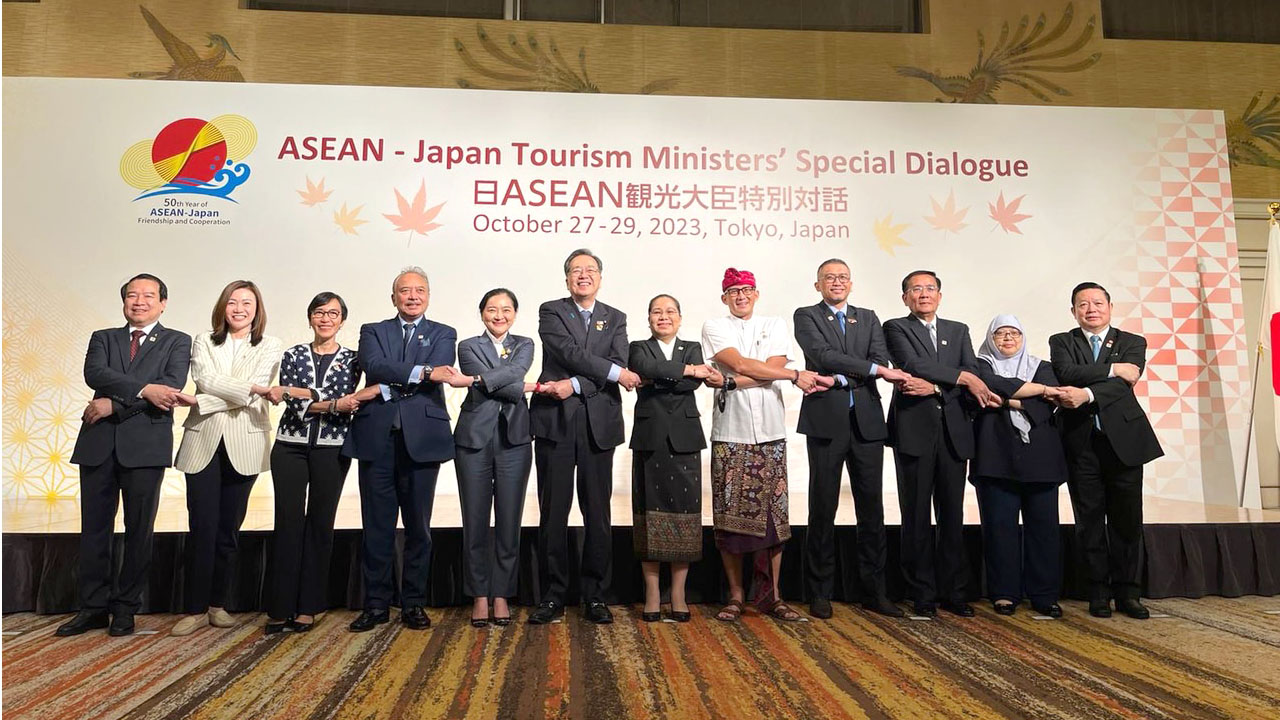
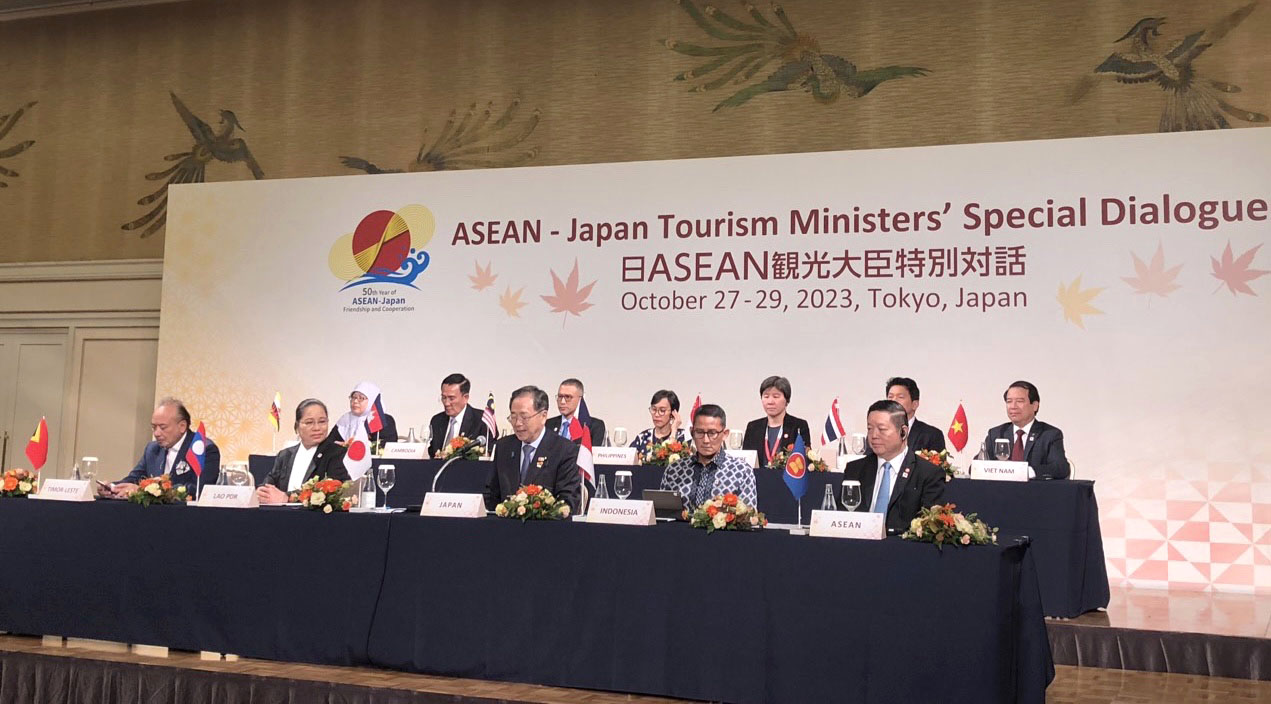



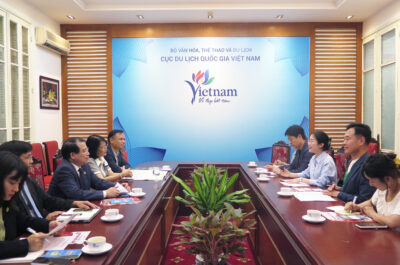
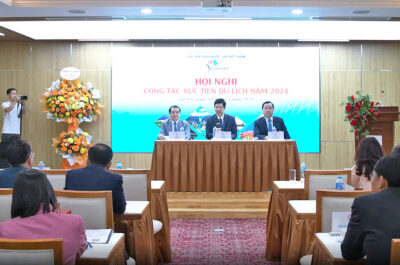






![[PR] PR_Ascott and Vimut Hospital_2024](https://www.traveldailynews.asia/wp-content/uploads/2024/04/PR-PR_Ascott-and-Vimut-Hospital_2024-400x265.jpg)





















































